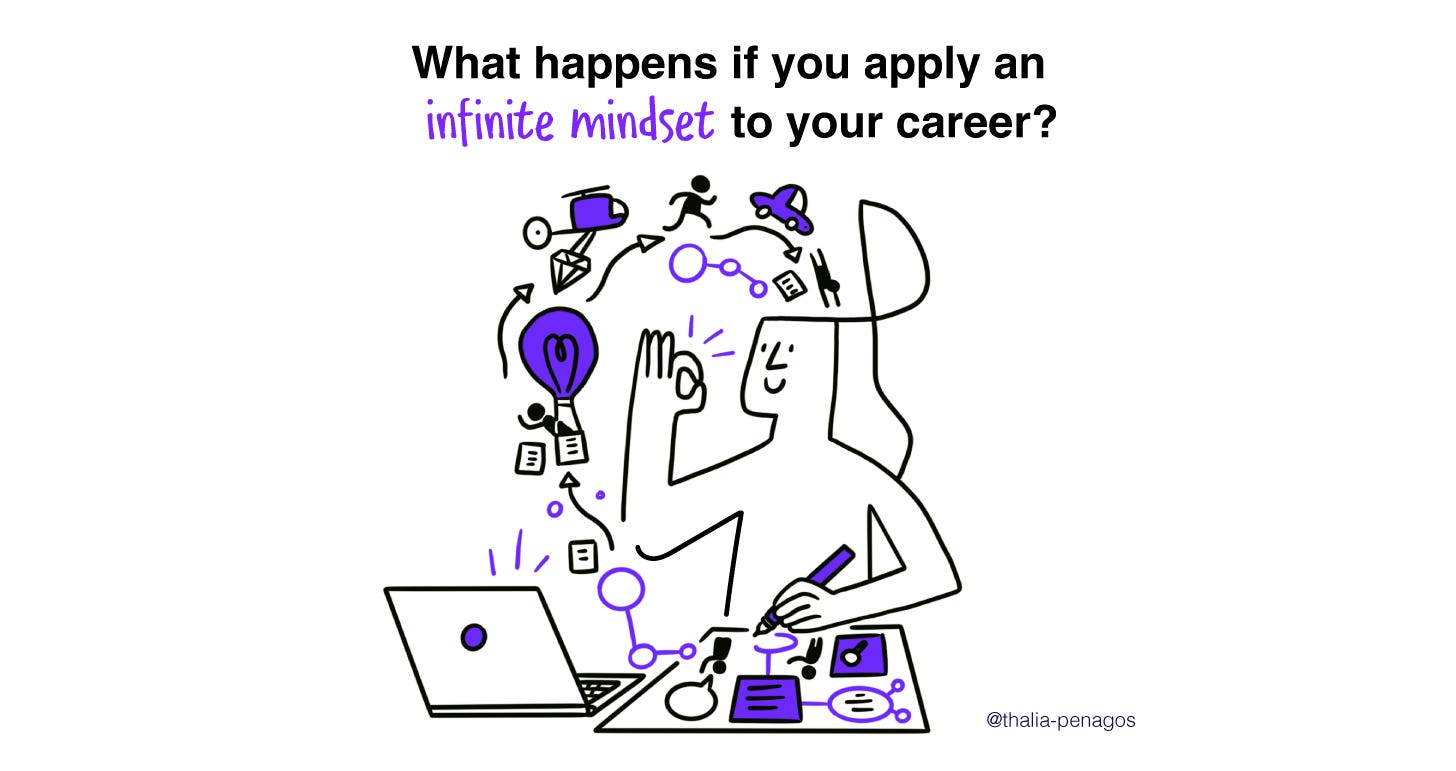What happens if you Apply an Infinite Mindset to your Career?
Navigating the Infinite Game of Careers
Have you ever stopped to question your 9-to-5 fixed schedule and what you're truly chasing in your career? Perhaps it's that impressive job title or the next zero added to your salary. But then what? What happens when you've 'won' all the traditional career trophies?
Welcome to the concept of finite versus infinite games in career mindsets, a distinction that might reshape how you approach your professional journey, especially in our rapidly transforming world of work.
The Finite Game Mindset in Careers
Many of us, perhaps without even realizing it, approach our careers with a finite mindset. This perspective sees life as a game with set rules, clear competitors, and a definitive finish line. In terms of career, this is often about chasing after specific job titles, aiming for a certain salary, or outdoing peers for promotions. Each promotion, each raise is a 'win', while any setbacks feel like 'losses'.
While there's nothing inherently wrong with setting concrete goals, the future of work challenges this mindset. Automation, artificial intelligence, and the gig economy have blurred traditional career paths. The job you're preparing for today might look completely different in a decade. A finite mindset in this environment can lead to rigidity, stress, and obsolescence.
In an interview, Simon Sinek remarks it's like "waking up every single morning with the sole purpose of making more money, advancing in the ranks to get more power, and always putting oneself first." Sinek notes, "I meet senior people who've navigated their careers through this finite lens, and ironically, they feel the most unfulfilled."
Want to delve deeper? My previous article, ‘Playing with an Infinite Mindset in Business’, complements these insights.
The Infinite Game Mindset in Careers
Inspired by James Carse's concept, an infinite game mindset removes the boundaries of defined competitors and clear victories. Instead of aiming to 'win', the objective is to keep playing, to continue evolving, and to remain in the game for the long run.
When applied to a career, this means focusing less on specific titles or milestones and more on continuous learning, adaptability, and personal growth.
Sinek elaborates, explaining this mindset as viewing one's career as "an opportunity to advance something bigger than oneself." It's a journey, not limited to one job or role, but weaving through different positions, all contributing to a larger cause or purpose.
Why the Infinite Game Mindset Resonates with the Future of Work
Our conventional work models are evolving. Fixed hours are yielding to flexibility, and the once-clear career ladder now changes unpredictably. In this scenario, an infinite mindset prepares us for unforeseen twists and turns, valuing adaptability and a purpose-driven approach—an infinite mindset champions continuous growth, lifelong learning, and personal evolution.
Sure, immediate goals lend direction. But as the world of work undergoes significant shifts, adopting an infinite game mindset is more relevant than ever. By adopting this perspective, we're not just preparing for the immediate challenges of tomorrow but setting ourselves up for a fulfilling, dynamic, and resilient career in the long run.
“A finite game is played for the purpose of winning, an infinite game for the purpose of continuing the play.” ― James P. Carse
Have a story to share? I'd love to hear from you! If you're interested in learning more, feel free to contact me on LinkedIn.
Enjoyed this article? Follow me for more intriguing and relevant content 😉
Thanks for reading. See you next Monday.




